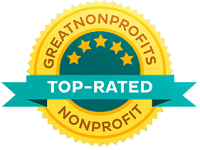Board Members
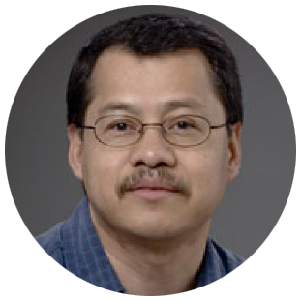
Pablo Chavajay
President
Pablo Chavajay
Pablo is a Tz’utujil Maya from San Pedro La Laguna in Sololá, Guatemala. He obtained his bachelor’s degree in psychology from San Carlos University in Guatemala and his master’s and doctoral degrees at the University of California at Santa Cruz in California.
Pablo currently works as an associate professor of psychology at the University of New Hampshire. His research examines cultural and historical aspects of human development and learning. The studies he has conducted among Tz’utujil Maya families of Guatemala have focused on children’s engagements in problem solving with caregivers and other children as well as generational changes in mothers’ and grandmothers’ perceptions of childrearing practices. Pablo has served as a MEF board member since 2008.
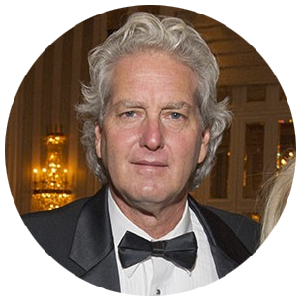
Mitchell Denburg
Vice-President
Mitchell Denburg
Studied photography at The School of The Boston Museum of Fine Arts. His works are housed in many private collections and photographic archives including Tulane University, and the Centro de Investigaciones Regionales de Mesoamérica (CIRMA) Photographic Archive, of which Mitchell was the founder. His work has been used to illustrate many articles and journals on development and anthropology, including the book Getting Ahead Collectively by Albert O.
Hirschman. His forthcoming book The Portraits of Mitchell Denburg is currently in production. In 1998 together with his wife Elizabeth Habie, Mitchell founded the New Roots Foundation, dedicated to the rescue of young girls at risk and unique and endangered ecosystems in Guatemala.
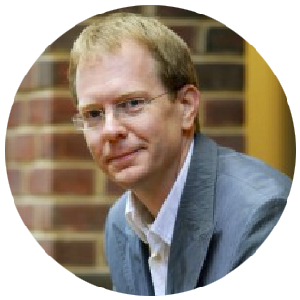
Edward F. Fischer
Treasurer
Edward F. Fischer
is Professor of Anthropology and Director of the Center for Latin American Studies at Vanderbilt University. He has worked in Guatemala for over 25 years, conducting fieldwork in Tecpán and other Maya communities.
His books include Maya Cultural Activism in Guatemala (1996), Cultural Logics and Global Economies: Maya Identity in Thought and Practice (2001), Broccoli and Desire: Global Connections and Maya Struggles in Postwar Guatemala (2006, with Peter Benson), and most recently, The Good Life: Aspiration, Dignity, and the Anthropology of Wellbeing. He is also the founder and director of Maní+, a program that combats childhood malnutrition in Guatemala. More at www.tedfischer.org.

Diane Carazas
Diane Carazas
Diane is a Certified Professional Coach, International Development practitioner, and seasoned facilitator. Her experience includes leadership of international organizations such as Plan International, Food for the Hungry, CARE and Peace Corps in South America and West Africa. Diane's focus is optimizing people potential, and creating systems that work for people, planet and prosperity.
Diane has a Bachelor of Science in Social Work from Southern Illinois University and a Master of International Administration from The School for International Training.
Diane says: “I am passionate about supporting MEF because I believe in offering all people an opportunity to optimize their potential through education. I also know that those individuals with a Mayan culture have much to teach all of us for the benefit of humanity and our planet. It is an honor and a privilege for me to make a contribution as a board member with MEF.”
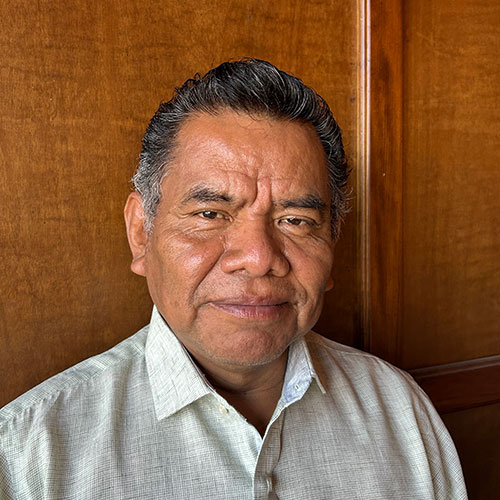
Héctor Concohá Chet
Héctor Aurelio Concohá Chet is a kaqchikel historian, who obtained his history…
Héctor Concohá Chet
Héctor Aurelio Concohá Chet is a kaqchikel historian, who obtained his history degree in Guatemala and subsequently a master’s in Central American History at the University of Costa Rica. Researcher and University Professor, Hector has a deep understanding of the needs and inequality faced by Guatemalan youth in academic aspects.
His publications include the “Boletín del Archivo Histórico Arquidiocesano Francisco de Paula García Pelaéz”; “The concept of belonging to the mountains among the Kaqchikeles of San Juan Sacatepéquez, 1524-1600” article in the book The Colonial Era in Guatemala; various publications in the “Social Science and Humanities” journal, and the “Interethnic Studies” journal from the University of San Carlos in Guatemala.
Héctor has followed the work of MEF for more than two decades, and joined the MEF board in 2025 as part of his lifelong commitment to addressing inequality and supporting Maya youth.
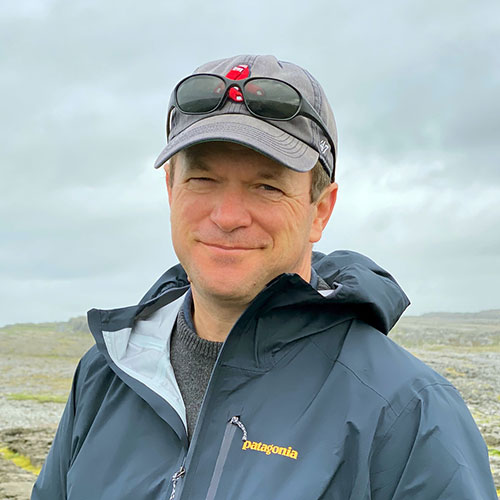
Ian Lutz
Ian Lutz
Born and raised primarily in Guatemala until the age of 9, Ian Lutz has spent the last 28 years living in southern Vermont, where he and his wife, Jennifer, have owned and operated Cas-Cad-Nac Farm, a large alpaca breeding operation. When he is not writing marketing copy for their farm’s animals, interacting with clients, or up in the barns managing the herd’s breeding operations, he can often be found happily obsessing about his favorite sports teams: the Boston Red Sox, the Montreal Canadiens, and the Arsenal FC. He is thrilled to be back and helping to support the MEF in any way he can!
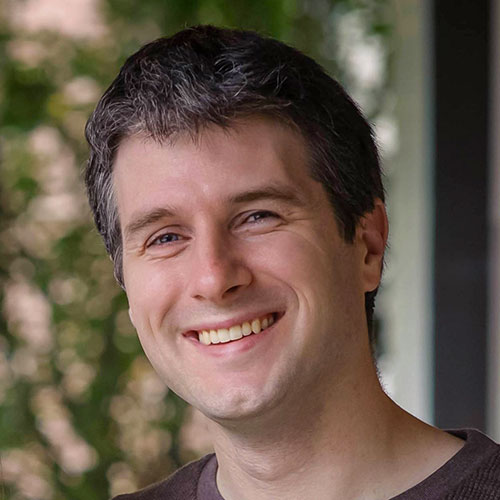
Sterling Crockett
Sterling Crockett has over 20 years of tech industry experience, currently…
Sterling Crockett
Sterling Crockett has over 20 years of tech industry experience, currently as a Principal Software Engineer for Microsoft. He spent years living in the Quiche- and Mam-speaking regions of Guatemala, and along with his wife Julie believes deeply in the imperative to support the education of the young adults from those communities. Together, they have supported the Maya Educational Foundation since 2012.
He holds Masters and Bachelors degrees in Computer Science from the Massachusetts Institute of Technology.
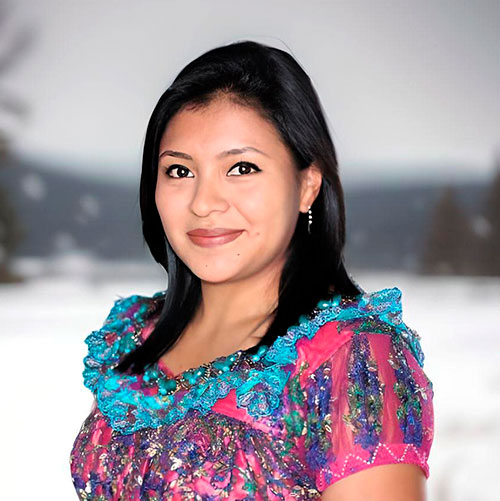
Guadalupe Sic López
Guadalupe Sic Lopez is from Uspantán, a small town in the Quiché department…
Guadalupe Sic López
Guadalupe Sic Lopez is from Uspantán, a small town in the Quiché department of Guatemala. She speaks Spanish, English, and K'iche' Maya. She later moved to Antigua, Guatemala, to complete her diversificado (Guatemalan equivalent of high school). While in Antigua, she furthered her studies at Rafael Landívar University where, with the support of MEF, she successfully earned her degree in Business Administration.
She currently works in business administration for a U.S.-based medical instrument company. Outside of work, she enjoys a variety of hobbies, including Latin dance and ballet, playing the piano, crafting jewelry, and practicing sports.
After graduation, Guadalupe served as a member of the FEPMaya Scholarship Committee for three and a half years. She is married and a proud pet parent to several "furry children." Passionate about animal welfare, she continues to support local animal rescue efforts.
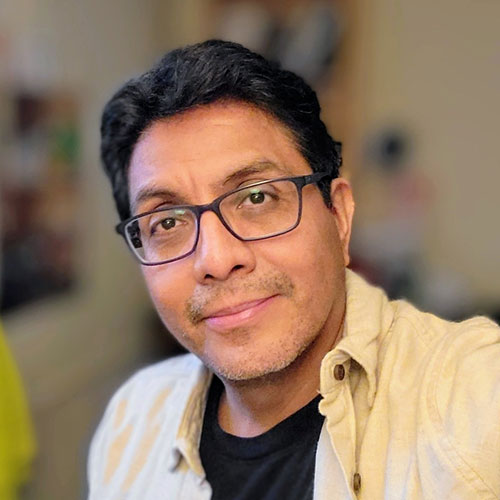
Abner Cruz
He has an MBA with emphasis in Human Resources Management…
Abner Cruz
He has an MBA with emphasis in Human Resources Management and a BS in Business Management from Upper Iowa University.
In 1990, he was awarded with a scholarship under USAID and Georgetown University sponsorship and obtained an Associate’s Degree in Business Management from North Central Technical College.
He graduated as a Licensed Elementary School Teacher from Instituto Normal Mixto de Occidente, San Marcos City, Guatemala.
For over 10 years, he presided Latinos Unidos Inc., a non-profit organization whose mission was to educate and connect Latin American families with City, County, and State-based resources throughout northcentral Wisconsin.

